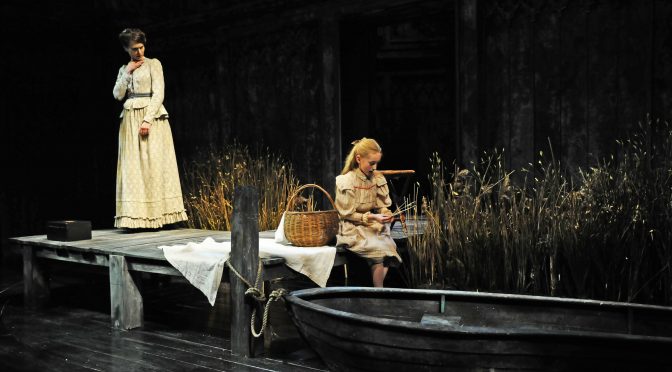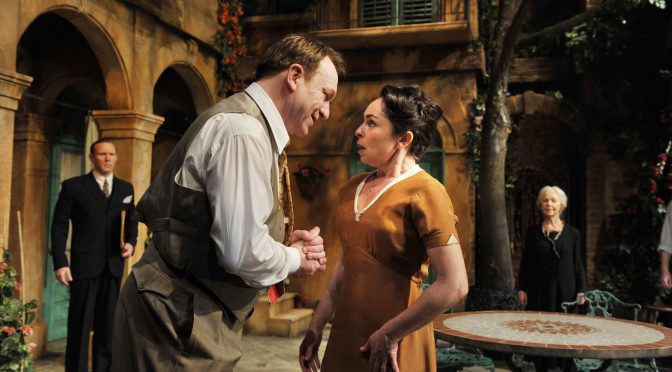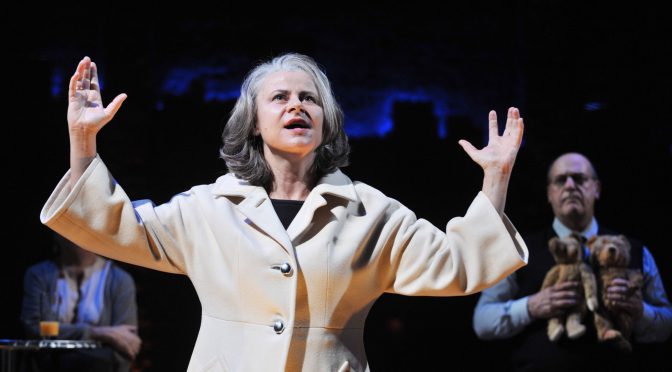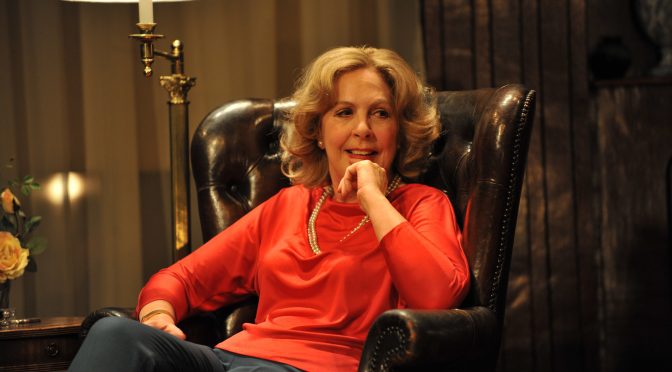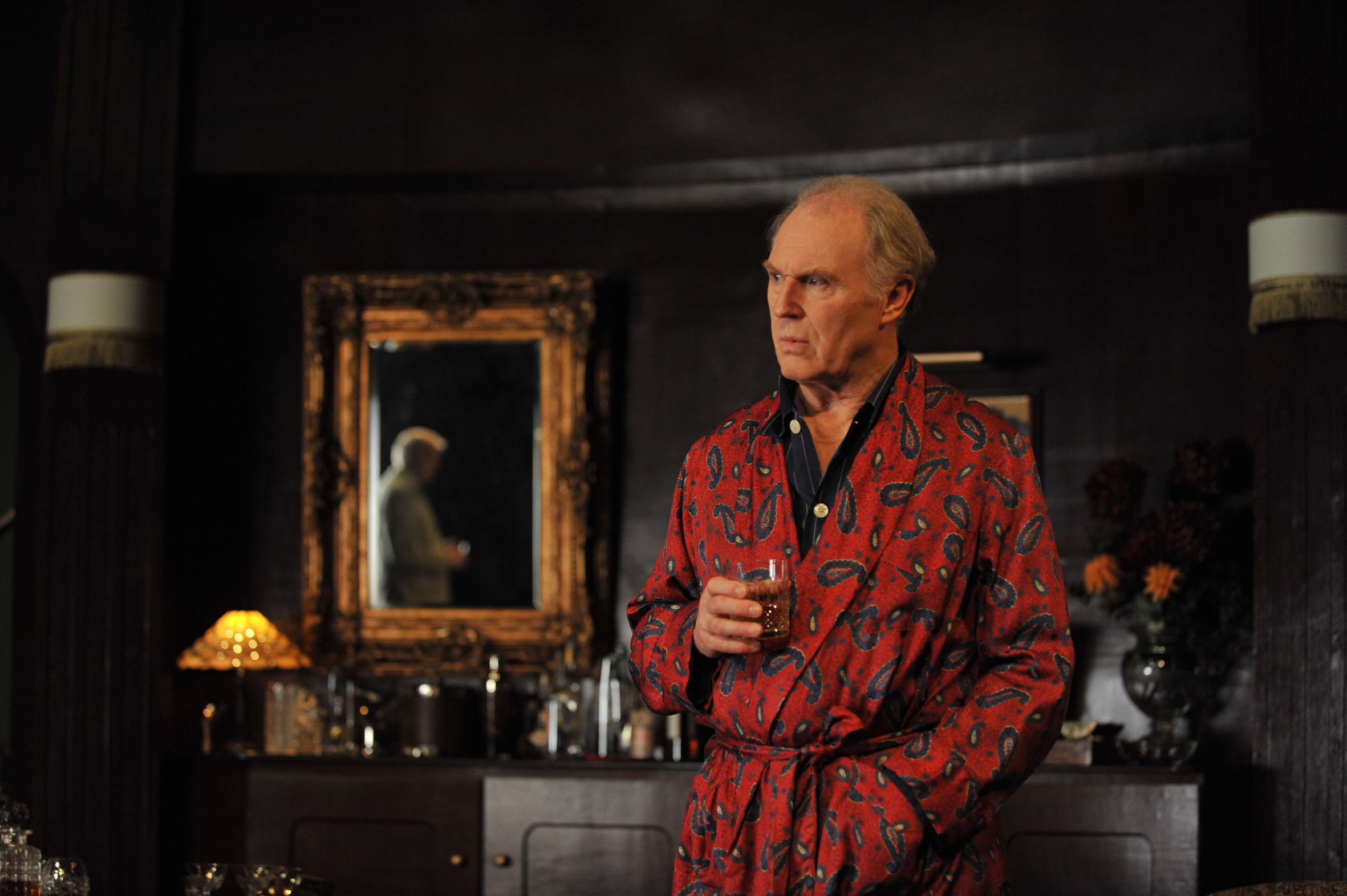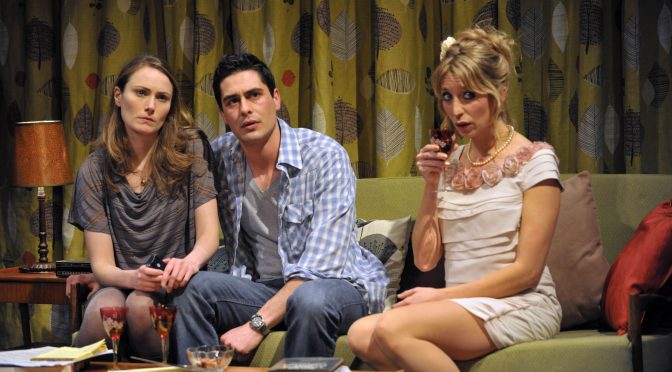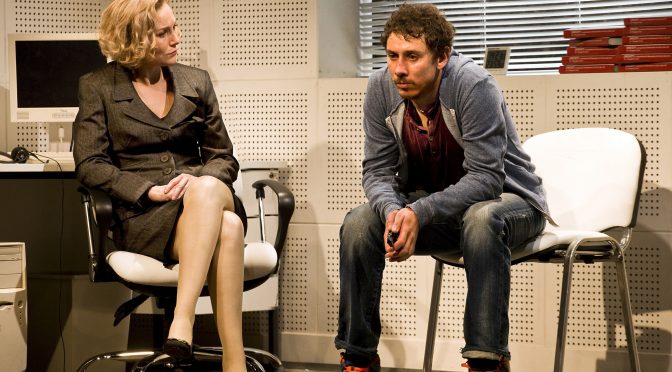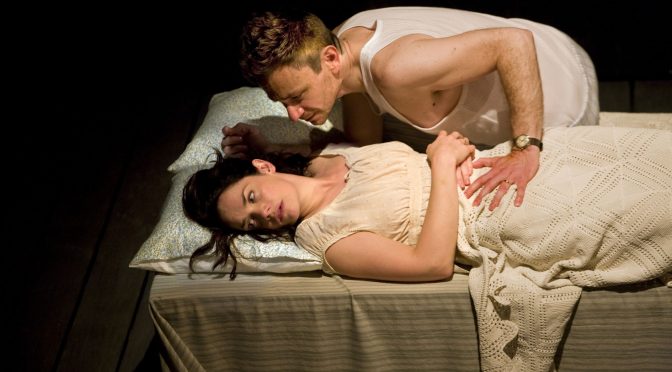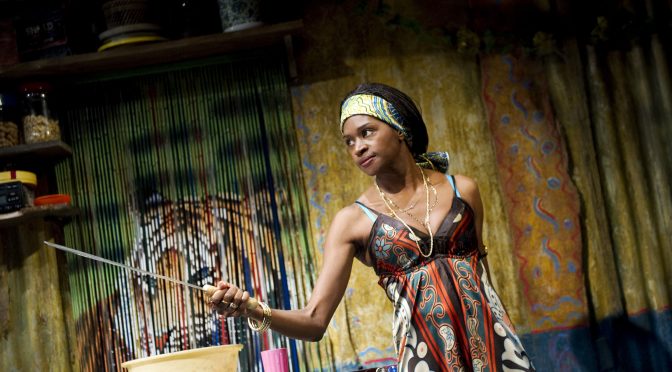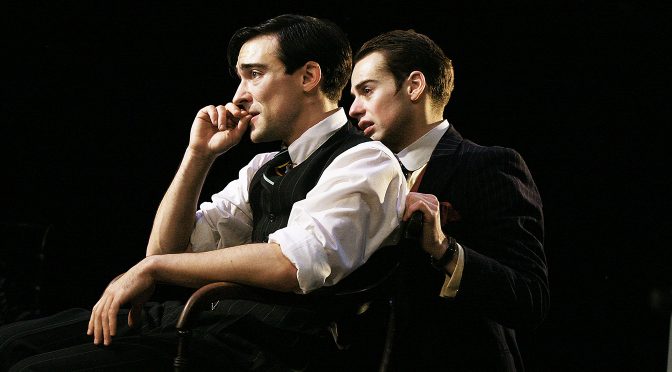It is great to see a thriller on the stage – there simply aren’t enough around. And, despite its philosophical underpinnings, Patrick Hamilton’s Rope is just that – a great thriller.
Director Roger Mitchell maintains suspense by dropping the interval and gets things off to a great start by opening in darkness, the stage occupied by two young men illuminated only by their cigarettes. The murder they have just committed, we learn, is the result of their plan to stage the perfect crime and assert their Nietzschean superiority.
But something is clearly wrong. Granilo, played by Alex Waldmann, cannot stand to have the lamp switched on. Throughout the evening that ensues, he can only play at being calm. His shrill panic breaks through to add to the tension.
The college friend with whom he has concocted the plot, Wyndham Brandon, played by Blake Ritson with sinister appeal, seems to be more in charge. To add spice to the plan it is decided to hold a party with the corpse still in the room, concealed in a chest.
Invited to this party are the victim’s friends and relations. Henry Lloyd-Hughes and Phoebe Waller-Bridge play a young couple who serve as the antithesis of Granilo and Brandon. They manage their parts with a carefree humour that adds to the pathos of the evening. Michael Elwyn plays the victim’s father and is deeply touching when learns of his son’s disappearance.
Also in attendance is Rupert Cadell, played by Bertie Carvel, a slightly senior college friend known for his intelligence and suspected of sympathising with the murderers’ perverse ideology. And Cadell is going to ruin the evening. Instantly suspicious of the theatrical atmosphere, he sets out to solve the mystery and entrap the killers. Clearly his morals are far stronger than his friends might have supposed.
Carvel carries the psychological depth of the piece, portraying a damaged man who nonetheless contains enormous empathy – for the murder victim of course, but also for the lost souls whose minds entertained the idea of killing in the first place. He also succeeds in the task of putting passion into the play. Mitchell avoids homosexual connotations between the murdering couple, as seen in previous productions and also Tom Kalin’s 1992 film. This brings his production closer to the famous Hitchcock’s version. The killers’ motive seems entirely academic, and it is left to Carvel to urgently explain to them the horror of what they have done.
Rope is the first production at The Almeida to be staged in the round – an impressive technical achievement enabling designer Mark Thompson to place the chest containing the murder victim as centrally as possible. However, the chest is clearly not the cassone referred to in the text. This becomes more of a problem as characters speculate that it looks like the kind of chest you would place a body in – it simply doesn’t.
Until 6 February 2009
www.almeida.co.uk
Photo by John Haynes
Written 21 December 2009 for The London Magazine

